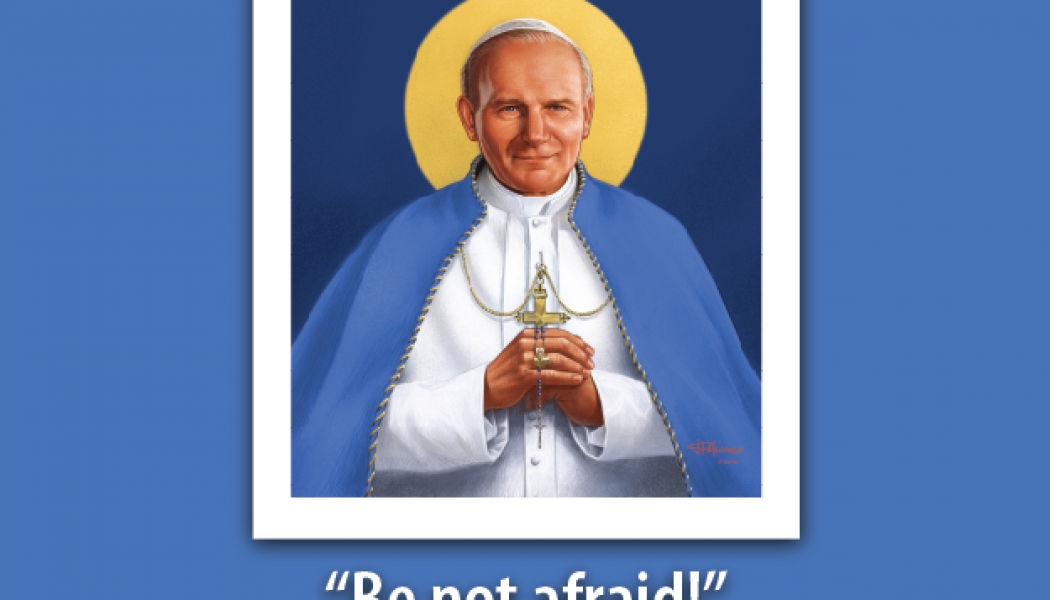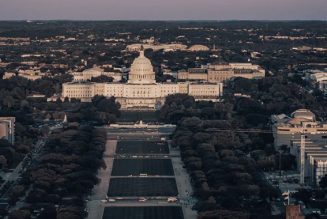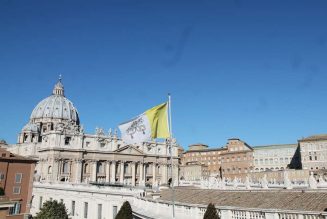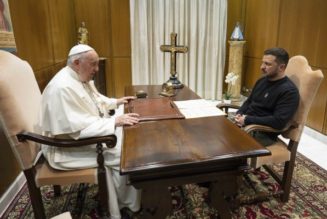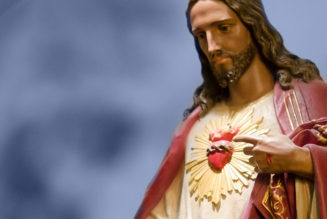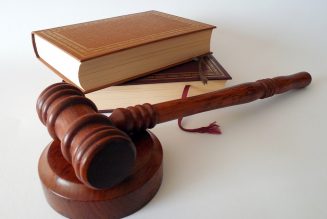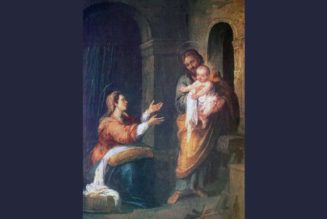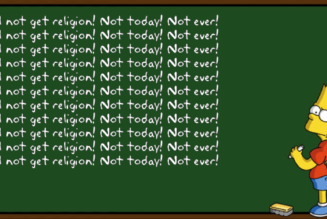Catholic World News
November 10, 2020
[News Analysis by Phil Lawler]
The Vatican has issued a 450-page report on former cardinal Theodore McCarrick, acknowledging that reports of McCarrick’s sexual misconduct had circulated for years but insisting that Pope Francis was unaware of any serious charges against the influential American prelate until shortly before he was stripped of his ecclesiastical honors.
The Vatican report does, however, cast some doubts on the actions of two previous Pontiffs, saying that Pope John Paul II appointed McCarrick as Archbishop of Washington despite damaging rumors, and Pope Benedict XVI chose not to take formal disciplinary action on more serious reports.
The report also casts blame on American bishops who “provided inaccurate and incomplete information” in answer to Vatican queries about McCarrick’s conduct. Several US bishops knew—and informed the Vatican—that McCarrick had persuaded seminarians to share his bed. But they chose not to see that behavior as a danger sign.
The details of the report confirm some of the charges made by Archbishop Carlo Maria Vigano, a former apostolic nuncio to the US, in a dramatic accusation released in 2018, acknowledging that Vatican officials had been aware of stories about McCarrick’s homosexuality. But the report undermines Archbishop Vigano’s most damaging charge: that he had warned Pope Francis about McCarrick several years earlier. The report reads: “Nuncio Vigano first claimed in 2018 that he mentioned McCarrick in meetings with the Holy Father in June and October 2013, but no records support Vigano’s account and evidence as to what he said is sharply disputed.”
Key questions brushed aside
Two of the concerns that critics had raised about McCarrick’s influence are handled only briefly in the report:
- Critics questioned why a prelate who was suspected of misconduct continued to act as a representative of the Vatican in delicate international talks, most notably in negotiations with China. The Vatican report attempts to deflect that charge, saying that “McCarrick was never a diplomatic agent of the Holy See.” But while he was not officially accredited as an envoy, the Vatican report itself concedes that McCarrick was engaged in “soft diplomacy.” In fact the report notes that he was recognized as “an exceptionally hard-working and effective bishop able to handle delicate and difficult assignments both in the United States and in some of the most sensitive parts of the world—including in the former Eastern Bloc and particularly Yugoslavia.”
- Critics also suggested that McCarrick’s rise through the ecclesiastical ranks was attributable to his legendary success as a fundraiser, who brought enormous contributions to the Vatican. The report flatly denies that theory:
Overall, the record appears to show that although McCarrick’s fundraising skills were weighed heavily, they were not determinative with respect to major decisions made relating to McCarrick, including his appointment to Washington in 2000. In addition, the examination did not reveal evidence that McCarrick’s customary gift-giving and donations impacted significant decisions made by the Holy See regarding McCarrick during any period.
A two-year investigation
The Vatican report, released by the Secretariat of State on November 10, is the result of a two-year investigation. The Vatican had been under heavy pressure to provide an explanation for McCarrick’s rise, and his continued influence within the Church, after the explosive revelations that he had abused young men—relevations that prompted his resignation from the College of Cardinals in June 2018, and his laicization last year after a canonical trial.
The report does not focus on the details of McCarrick’s misconduct, but instead concentrates on the question of why he was able to retain his position and influence for years after reports of that misconduct began to circulate.
The McCarrick Report claims that although rumors about McCarrick were widespread by the time he was appointed Archbishop of Washington in 2000, the Vatican had no concrete evidence of misconduct. The report takes special care to assert that Pope Francis was not informed of credible charges. “Until 2017, no one—including Cardinal Parolin, Cardinal Ouellet, Archbishop Becciu or Archbishop Viganò-—provided Pope Francis with any documentation regarding allegations against McCarrick…”
”Inaccurate and incomplete information”
However, the report reveals, the late Cardinal John O’Connor of New York had raised concerns about the rumors, arguing against the promotion of McCarrick—who at that time was Archbishop of Newark, New Jersey—to become Archbishop of Washington. At that point the Vatican questioned the four other bishops of New Jersey dioceses. The result, the report says, cleared McCarrick: “Three of the four American bishops provided inaccurate and incomplete information to the Holy See regarding McCarrick’s sexual conduct with young adults.”
Significantly, the New Jersey bishops confirmed the rumor that Cardinal O’Connor had heard: that McCarrick persuaded seminarians to sleep with him at a house on the shore. However three of the four bishops questioned (Bishops Hughes, Smith, and McHugh) saw no reason to blame McCarrick for this behavior. “The bishops’ responses to the inquiry confirmed that McCarrick had shared a bed with young men but did not indicate with certainty that McCarrick had engaged in any sexual misconduct.”
The Vatican report does not explain why these three American bishops would not regard sleeping with young men as, at a minimum, a serious impropriety and indication of imprudence. Nor does it indicate why Vatican officials, informed of this pattern of behavior, would take the same complacent attitude.
Aware of the concerns that had been raised, then-Archbishop McCarrick wrote to defend himself, addressing a personal letter not to Pope John Paul II but to his powerful secretary, then-Archbishop Stanislaw Dziwisz. In that letter McCarrick insisted that he had “never had sexual relations with any person male or female, young or old, cleric or lay.” Apparently persuaded by that letter, Pope John Paul II went ahead with his plan to appoint McCarrick to head the Washington archdiocese.
At that point, the report assures readers, only rumors of McCarrick’s misconduct—not clear evidence or even specific charges—had reached Rome. Yet the report also says that at least one woman had reported McCarrick’s approaches to young men, in letters sent to many American prelates as early as the 1980s. No word about those charges reached the Vatican or even the Vatican’s nuncio in Washington, the report says.
Criticism of Archbishop Vigano
Later, when specific charges arose, Pope Benedict XVI recognized the problem. But because McCarrick was already retired, Pope Benedict chose not to initiate formal disciplinary proceedings. Instead he instructed McCarrick to remove himself from public life. The Vatican report notes that Pope Benedict’s directives were not formal sanctions. “They were, rather, recommendations, given to him orally in 2006 and then in writing in 2008…” McCarrick ignored those instructions, maintaining his high visibility.
As evidence of misconduct continued to emerge, the Vatican now discloses, Cardinal Marc Ouellet, the prefect of the Congregation for Bishops, asked Archbishop Vigano to “take certain steps, including an inquiry with specific diocesan officials,” to assess the accuracy of the charges. The Vatican report, in its most damaging note on the whistleblower, says: “Vigano did not take these steps and therefore never placed himself in the position to ascertain the credibility.”
As for Pope Francis, the report says that he did not take action against McCarrick until 2017 because he was not presented with any new evidence:
Believing the allegations had already been reviewed and rejected by Pope John Paul, and well aware that McCarrick was active during the papacy of Benedict XVI, Pope Francis did not see the need to alter the approach that had been adopted in prior years.
Unanswered questions
Despite its length and apparent thoroughness, the Vatican report leaves two key questions unanswered.
- Was McCarrick protected by a homosexual network? The word “homosexual” does not appear in the executive summary of the 450-page report, and only infrequently in the full text. But Archbishop Vigano charged that McCarrick’s career was advanced by homosexual clerics, and that the American prelate in turn helped to promote other members of the “lavender mafia.” The actual contents of the report from the Secretariat of State lend support to that hypothesis. Why did some American bishops give the Vatican misleading information about McCarrick’s behavior? Why did others remain silent about persistent rumors? Why did both American bishops and Vatican officials not recognize sleeping with seminarians as conduct that should disqualify a candidate for ecclesiastial promotion?
- How did McCarrick’s influence shape Vatican policy and the American hierarchy? For years, even after his retirement and after the revelations about his abuses, McCarrick was a powerful figure in Rome. He spoke about his bid to promote then-Cardinal Bergoglio as a candidate for the papacy; later he traveled to China to speak about prospects for ties between Rome and Beijing. He was regarded as the American prelate most influential in the appointment of new bishops for the US. Are McCarrick’s preferences still guiding Vatican policy? Are his proteges still advancing through the ecclesiastical ranks?
The Vatican report recognizes the history of Theodore McCarrick as a serious injury to the Catholic Church. But it does not address the crucial question of influence within the Church: the influence that McCarrick wielded, and the influences that promoted him.
For all current news, visit our News home page.
Further information:
Sound Off! CatholicCulture.org supporters weigh in.
All comments are moderated. To lighten our editing burden, only current donors are allowed to Sound Off. If you are a current donor, log in to see the comment form; otherwise please support our work, and Sound Off!

There are no comments yet for this item.
Join Our Telegram Group : Salvation & Prosperity
